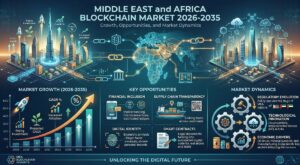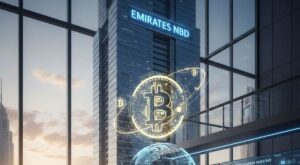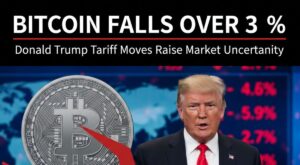The United Arab Emirates has adopted blockchain technology and introduced many solutions. For instance, banks utilize an open Know Your Customer platform and several similar organizations also use the UAE Trade Connect blockchain for trade financing.
To create a national system for carbon credits utilizing blockchain technology, the Ministry of Climate Change and Environment has signed a preliminary agreement with the UAE-based Industrial Innovation Group (IIG) and Venom Foundation.
According to a statement released on August 7, the agreement reached in the lead-up to the Cop28 climate summit in Dubai in November and December is consistent with the UAE’s stronger carbon emissions reduction targets this decade and reaching its goal of climate neutrality by 2050.
This article will discuss and observe the potential impacts of the blockchain-powered credit system on the UAE’s green economy.
How the UAE’s blockchain-powered carbon credit system will promote green economy
The Memorandum of Understanding between the Ministry of Climate Change and Environment (MoCCAE), the Industrial Innovation Group LLC, and the Venom Foundation was formally signed in front of witnesses by Mariam bint Mohammed Almheiri, the Minister responsible for environmental issues.
With cutting-edge blockchain technology, this partnership aims to create a revolutionary national system for carbon credits.
The MoU aims to achieve four strategic goals:
- Reducing greenhouse gas emissions to ensure climate neutrality.
- Advancing agribusiness.
- Making ethical investments in sustainable food systems.
- Increasing the economic value of the Environmental Health Programme.
- Preserving biodiversity to maximize the use of ecosystem services for sustainable development.
According to the Minister, using blockchain-powered technology to handle carbon credits has various advantages for the nation’s goals. She noted that the change would increase openness in the tracking of carbon credits without affecting efficiency. In addition, she mentioned that the country intended to pledge to reduce emissions by 40%, which is 9% greater than its prior pledge.
Additionally, the UAE is spending a lot of money on sustainable energy projects, including the Mohammed bin Rashid Al Maktoum Solar Park in Dubai, the Barakah Nuclear Power Plant in Abu Dhabi, and a two-gigawatt solar factory in the Al Dhafra neighborhood.
Blockchain and cryptocurrency hubs can be found in Abu Dhabi and Dubai. The Abu Dhabi Global Market and the Dubai Multi Commodities Centre (DMCC) Crypto Centre are in Dubai.
The DMCC Trade Flow platform, another register run by the DMCC, centralizes the transfer of goods pledged as collateral. A single registration reduces fraud by those who attempt to raise money on the same collateral more than once.
Conclusion
In conclusion, the agreement between IIG and Venom for the national system of carbon credits is an “important step” that underlines the UAE’s commitment to accelerating climate action “for a more sustainable future for us and future generations following the Minister’s statements on Monday.
The MoU also includes a wide range of topics, including sustainable practices, beekeeping, innovative technology, and investments in agriculture. In addition, it covers laws governing pandemic avoidance, environmental preservation, and the promotion of green economy and urban growth.




























